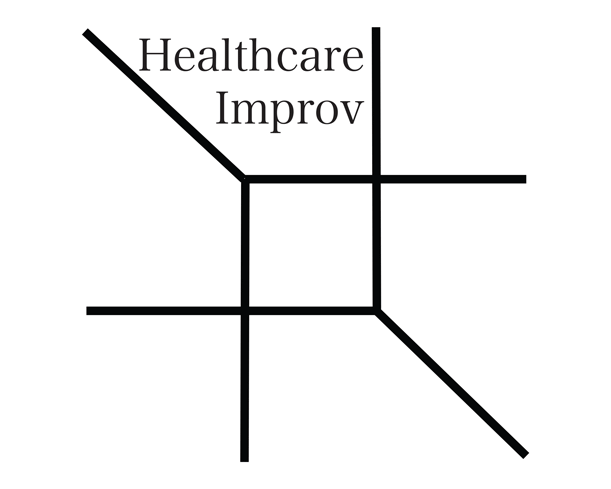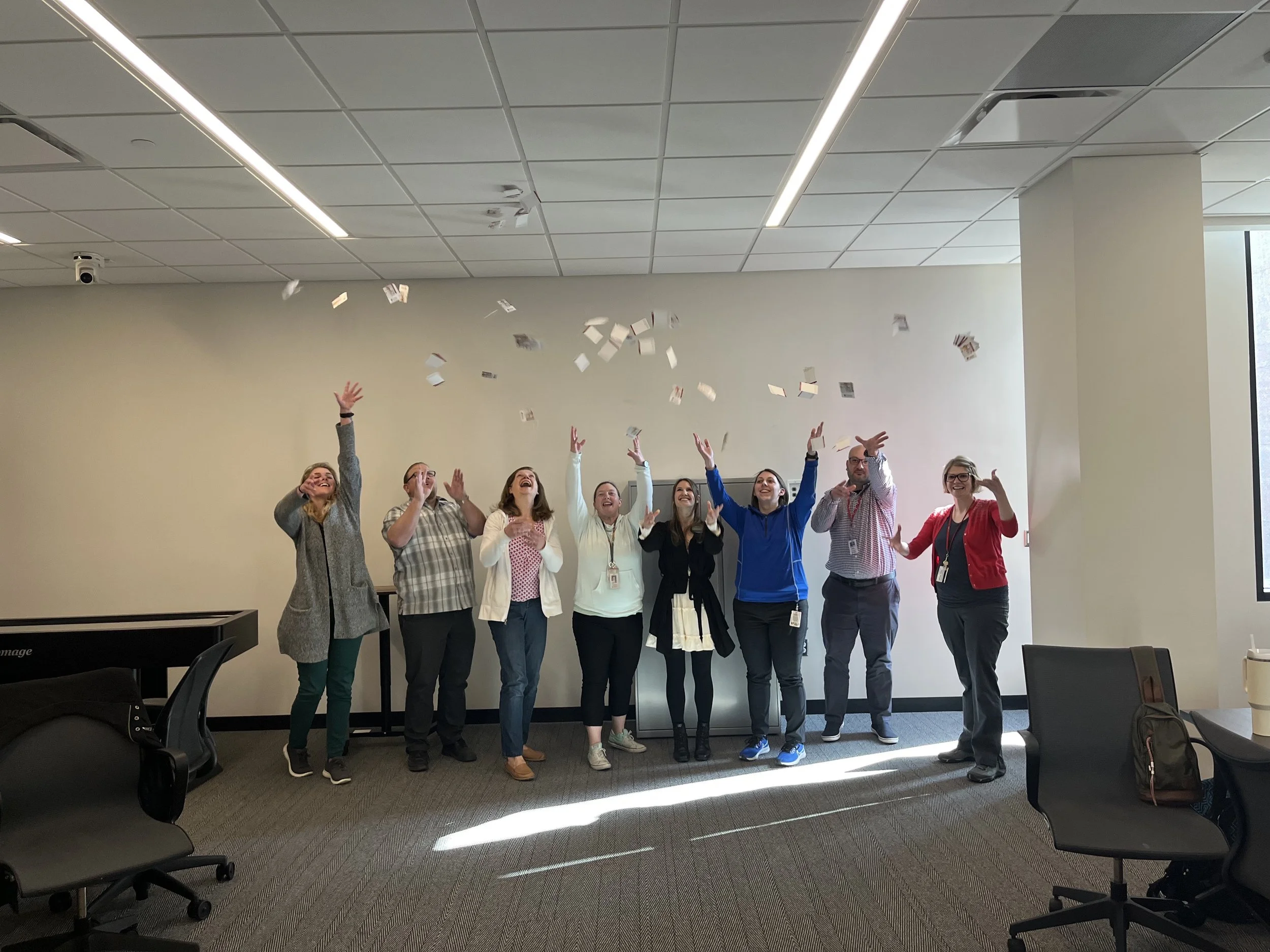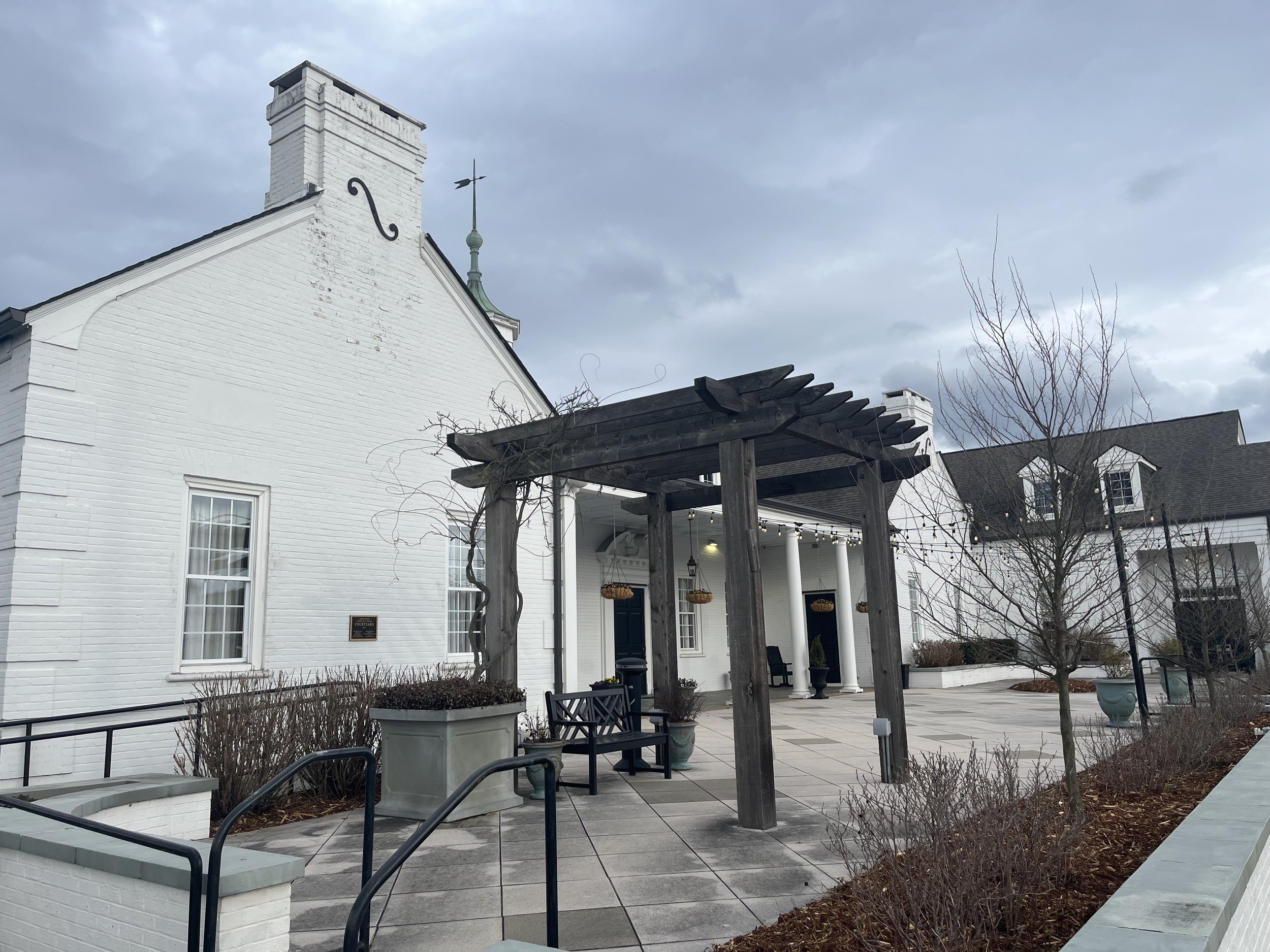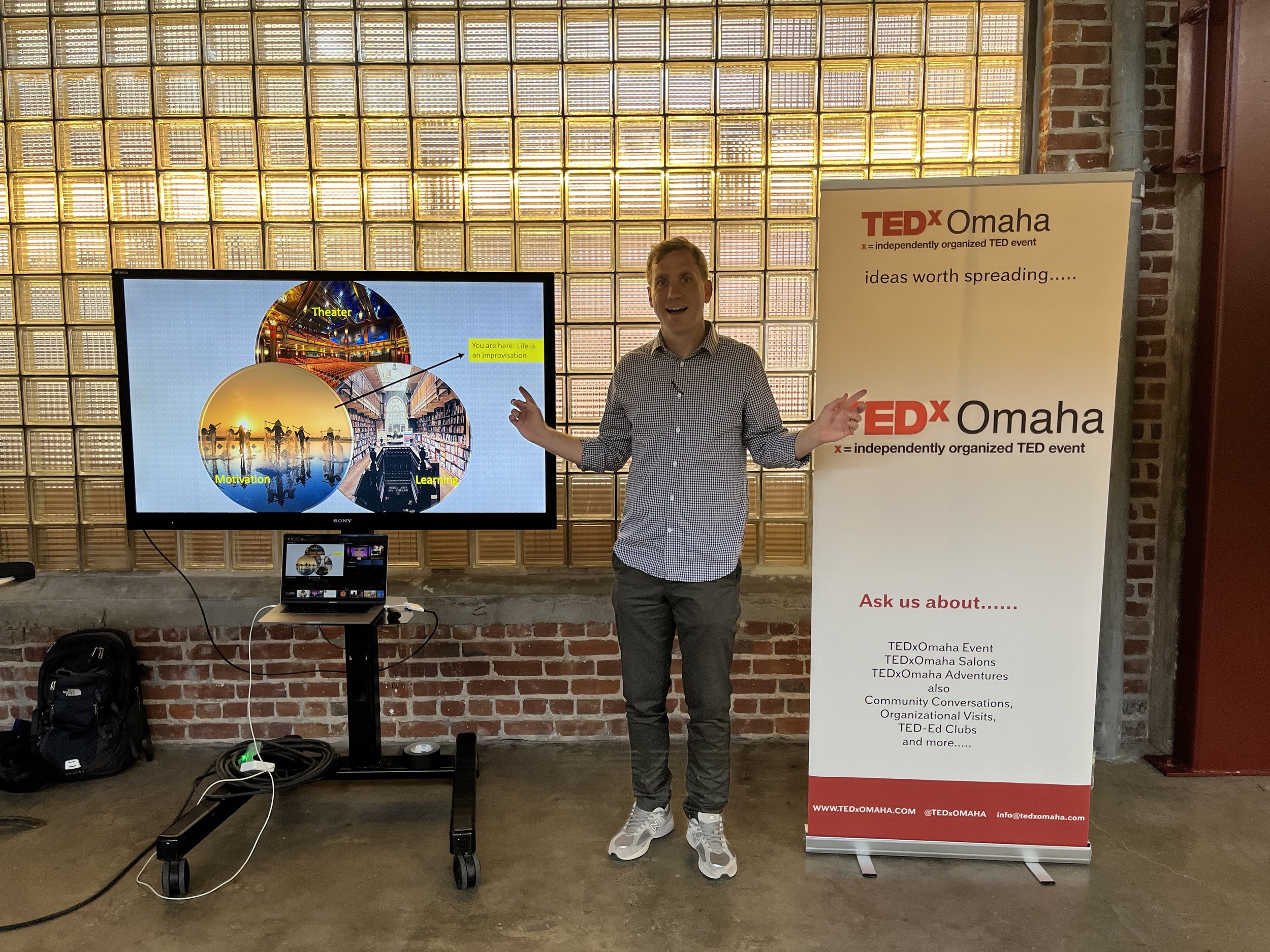The Most Flexible Element of a System Has the Most Control in that System
Oh how it has been a while. Please see The Resistance as it applies just as much now as it did then. However each new journey begins with a single step so hopefully this is the first in many steps. Beyond just giving excuses for why I have not written anything, this entry will serve as a year in review for the past academic year. It was a very successful year but the way in which it was successful underlies some of the reasons the resistance was so great. I hope to discuss ways to tackle that in the near future in a way that is hopefully beneficial to you, Dear Reader!
Overall encounters - last academic year (2021-2022) there were about 1,000 encounters. This past year (2022-2023) there were roughly 1,500 encounters. I count anytime I teach or speak publicly about the benefits of applying improv principles to your life as an encounter. This was right at the goal I had set out at this time last year. The encounters for this academic year were also more meaningful and more connected. I don’t have a way to quantify that, but you will have to trust me. Part of that is due to learning and adjusting how each experience is organized. Overall this year was about consolidating the things that I have done into the most effective, beneficial experiences as they could be.
The finale of a great series of workshops this year. We did 8 workshops throughout the academic year. Lots of fun and great insights were shared in all of them!
Faculty Development workshops – This is a particularly good example of the sentence above. This year for the faculty development workshops, we did the same as we did the year before. There were the same or maybe even slightly less attendees at these workshops but those that did attend were more connected to the ideas of improv than any other year. Meaning, the attendees participated in multiple activities beyond the workshops. That is the goal for these faculty development workshops, that they prompt further inquiry into how the tenets of improv can improve there life both personally and professionally.
It was cool to do a workshop for all of the third year medical students at Creighton (where I went to medical school). I tried to think how I would behave if I saw myself talking, which was an interesting way to look at how I present myself, ha!
Med student workshops - this year saw major growth in medical student workshops here in Omaha. In years past I had done workshops for first year medical students at UNMC. This year i did one less workshop for the first years at UNMC but I did a workshop for the rising fourth years at UNMC. I also did a whole class workshop for the rising third year medical students at Creighton University, as well as a smaller workshop for the 4th years going into Pediatrics at Creighton University. Overall, it was one small step backwards and four steps forward, which is nice. One of the biggest challenges in these medical student workshops is the logistics of making sure each student has an opportunity to practice and share discussion points with a small group while also connecting all of the intended learning points with the larger group. That certainly is a challenge for any active learning done at scale. This setting also provides the best example of my favorite experience in my role as an educator, where I hear uproarious laughter all across a large room, and then I am also able to have an insightful discussion about what it means to be a physician and serve patients in a corner of the room while the laughter continues in other parts of the space.
The OT workshop was in August 22 with masks and some members on zoom. Quite a bit of adaptability throughout this year!
Other professionals workshops - this grew this year as well. I did a workshop for the occupational therapists at the beginning of the academic year as well as continuing to do 2 workshops a year for the PA students at UNMC. There were attempts to combine some of the other professional groups together for one large workshop that was interdisciplinary that that was too difficult to schedule with multiple different curriculum timelines. Maybe someday
Biggest class I have taught yet. It is such a joy watching them explore ideas and have fun
Improv Class at The Backline - this was a huge area of growth for me this year. The level one class in the fall was great. The level one class in the spring had a new format. It was changed in a way that I think will allow for future growth. Instead of Level 1 that was seven weeks of three hour classes there were two parts to Level 1, each one was 5 two-hour sessions. Each of the 10 two-hour sessions had a theme of how improv can apply to your life. This new level one was very similar to the faculty development workshops but in the class there was much more of a focus on how to develop your skills as an improviser, whereas the faculty development workshops had just enough instruction on improv to extract the learning points from the exercises. More to come in the future!
Awesome venue in Morganton, NC. I did four workshops for 3 different groups of healthcare providers in February 2023 at UNC Blue Ridge. They have a really great healthcare community there
Travel workshops/experiences – This was a huge new area of growth for me this past academic year, getting to travel to do these improv experiences. It has been fun to travel and discuss these ideas with people who work in different health systems. It has allowed me to see how the ideas can live in a similar, but new, environment. There are some exciting journeys ahead
Beyond healthcare – Last October, I did a session for TEDxOmaha. They have monthly events that explore various ideas worth spreading outside of their yearly engagement. This was a really cool experience and connected me to people who are interested in the ideas of improv beyond healthcare. Last academic year, I was on one podcast, this academic year, I was on two podcasts. Those have been great experiences as well
LESSONS LEARNED
Say Yes, and…
This is always the lesson from an improv experience, but this year really cemented how this idea can work at scale. Most of the opportunities that came my way this academic year came from embracing vulnerability to say Yes to the unknown and add what I could to the experience over and over years ago rather than saying Yes, and… recently. When I first started saying Yes to the idea of doing these activities, the payoff was limited and confined to my own sense of personal growth (not saying that is a small payoff, but there was no clear future benefit beyond that). This year is more of the vision I had when I set out to use improv as a modality to teach healthcare providers. This would not have occurred without me saying Yes, and… to the opportunities that were available in the previous years (which were sometimes limited by a certain worldwide pandemic).
Make your scene partner look good
Each of the experiences could not have taken place without the help of many many many people both directly related to each event and also indirectly related to each event. At all events, my goal is to make each participant feel like they have incredible power (to connect, to laugh, to serve) and that they have areas that they can develop even further to grow in the direction of their choosing. It is a challenging balance, and the needle can only be thread if my focus is making the participants look good. Each event is also due to the efforts of heeps of people, so the most successful events of the year have been because of nurturing relationships with the people that help decide what events to do. That has pushed me to make sure each of the events is as beneficial as possible for the sake of the people who asked me to do a workshop, so that they look good for bringing an improv activity to, oftentimes, serious environments. Make your scene partner look good was also the theme of a new workshop that was developed for enhancing professional communication and interprofessional teams that was attended by all 4th year medical students at UNMC two weeks ago, so it is fresh on my mind!
There are no mistakes
I’ve recently taken to saying there are mistakes in healthcare and there are actually mistakes in improv. I had a show last Friday and thinking back, there were opportunities for more fun in the show that I missed. Some of those, my teammates made into more fun things that took the show in a different direction that was even more fun than if I had said the right thing at the time. That is the beauty of improv and an improv mindset. We always set out to do something, it is not as if we are just wandering out on stage with a blank mind. It is figuring it out together on the stage and using mistakes as information to go somewhere even more interesting. That is how this year’s workshops went as well as they went. I made what most people would call mistakes in year’s previous, but I did not dwell on them beyond what was needed to use them to improve future experiences. This past year’s workshops were not perfect either, and I intend on using any suboptimal experience to improve future workshops and improv experiences. The idea of there are no mistakes is incredibly empowering because contained within it is the freedom that comes with abandoning perfection as well as a sense of striving to something even better. My work is worthwhile and beneficial, and also, I can do more to improve each workshop. This year was emblematic of that balance.
There are a million other lessons learned, but those are the ones that came immediately to mind. Next entry will look at future directions for the next academic year. If current trends continue, it should be written by mid winter 2024! Just kidding, see y’all soon!








